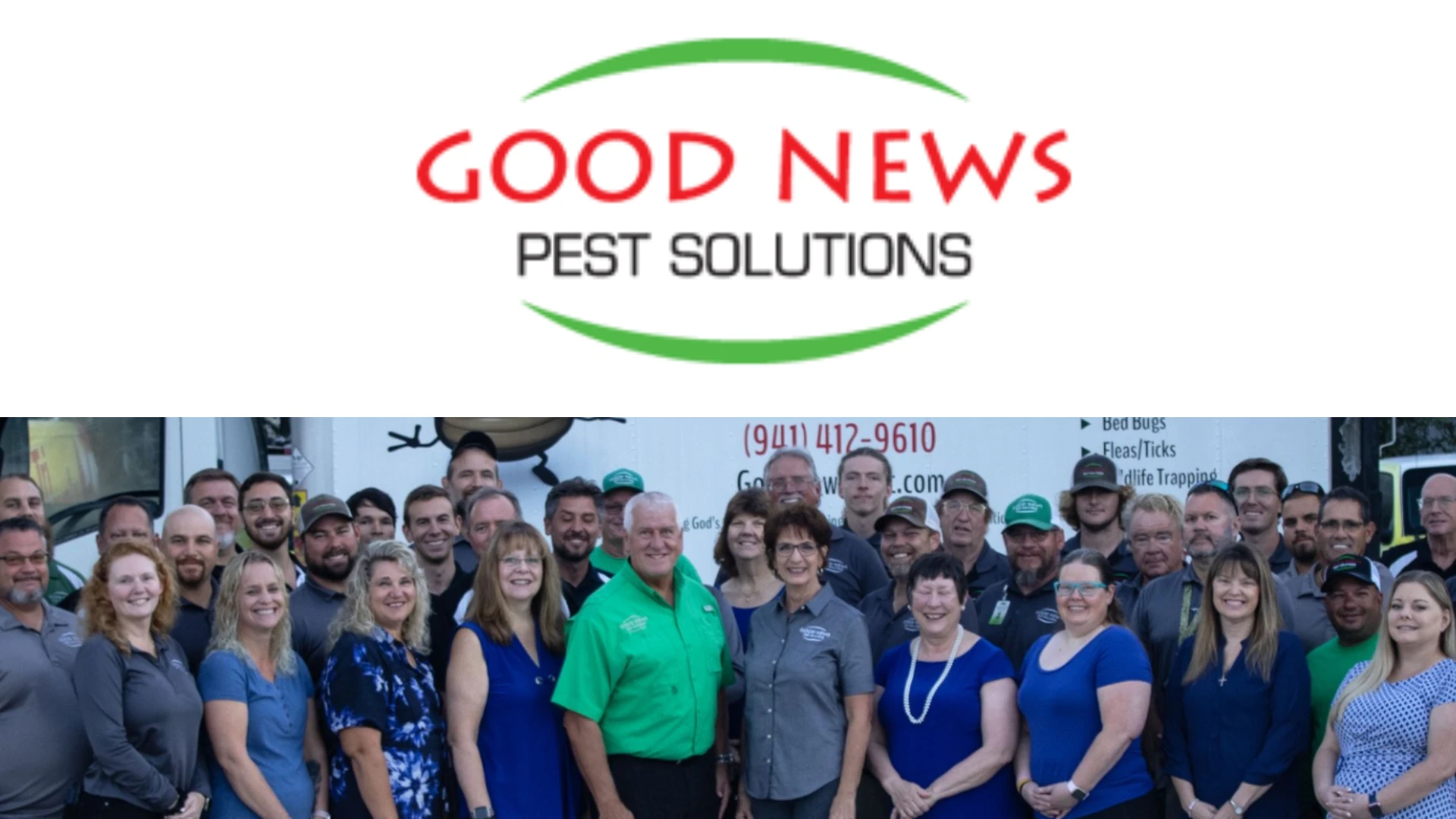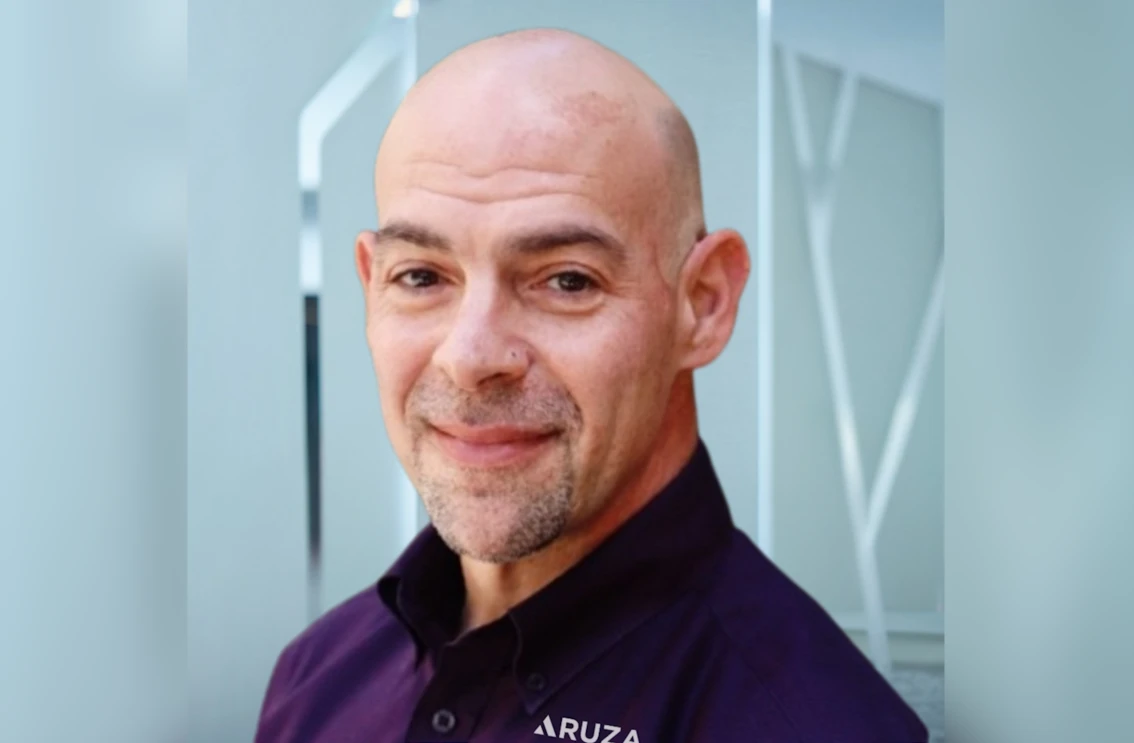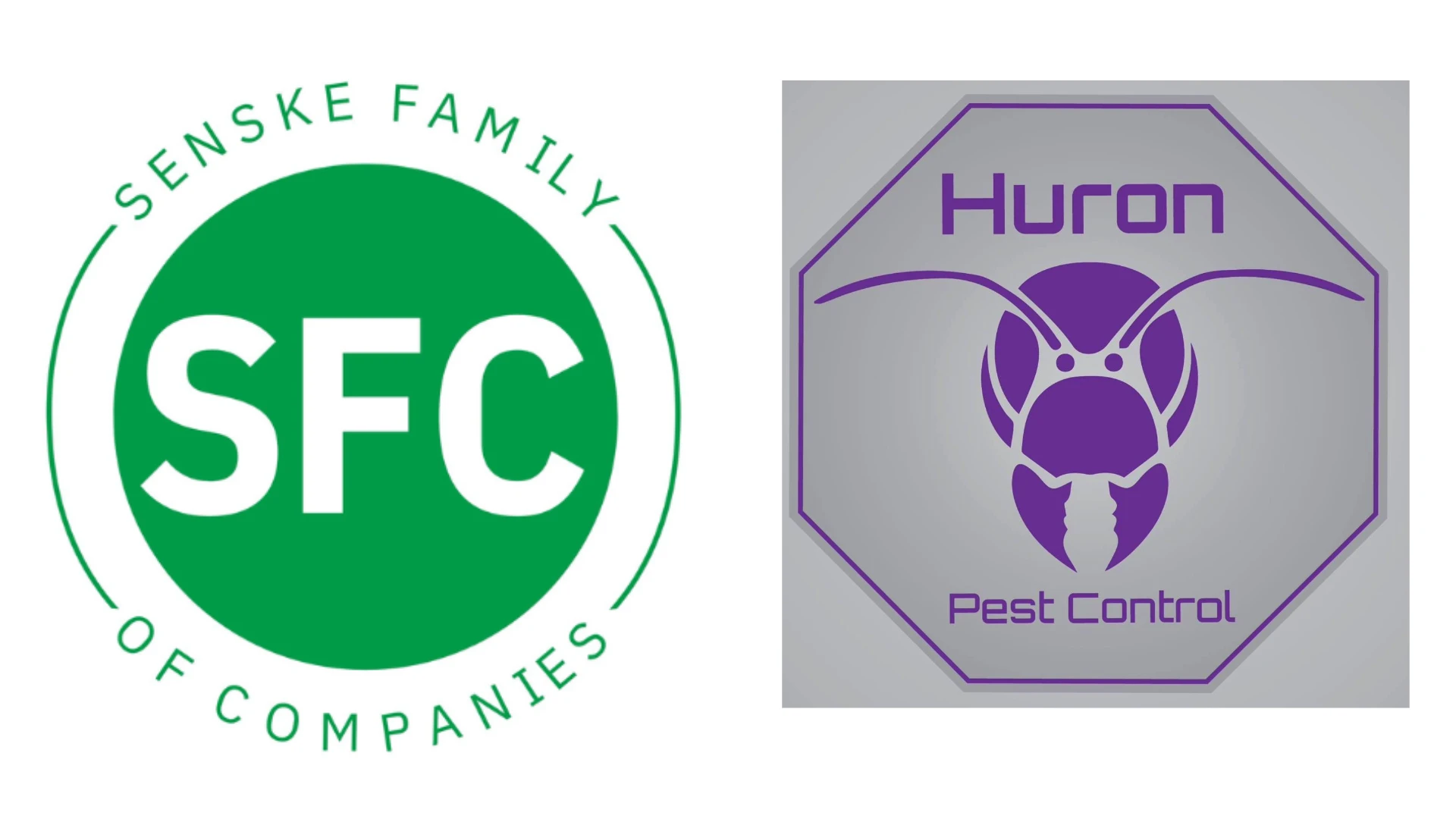Steve Burt Named President of ADAPCO
RESEARCH TRIANGLE PARK, N.C. — Longtime Bayer executive Steve Burt has been named president and CEO of ADAPCO, a Sanford, Fla.-based provider of products, technology and services to the mosquito control industry. In his new role, Burt will oversee day-to-day operations, maintaining the company’s commitment to the mosquito control industry while growing its presence in the water treatment sector.
“While I’m very sad to leave Bayer after working for the company for more than 20 years, it’s a marvelous opportunity to build a business and something I couldn’t pass up,” Burt said. “I am leaving Bayer on very good terms. Bayer has a lot of very talented people within its ranks and the U.S. market is very important to them, so they won’t have any trouble filling the position.”
Burt, 46, joined Bayer Environmental Science in 1984, and was named vice president of professional pest management in 2003. During his tenure, Bayer introduced a number of new products and enhancements to existing technology, including Maxforce Granular Fly Bait, Premise Foam, TopChoice Fire Ant Bait and Premise Granules. He also played a role in the design and construction of the company’s Clayton, N.C., research facility, and saw Bayer through the Federal Trade Commission’s “Hold Separate Order” relating to the sale of the company’s fipronil assets to BASF Corporation.
A well-known figure in the pest management industry, Burt served on the board of directors of the Professional Pest Management Alliance (PPMA) and was actively involved in a number of industry trade groups, including UPF&DA, Responsible Industry for a Sound Environment and the National Pest Management Association.
“Steve is going to be sorely missed,” said PPMA Executive Director Cindy Mannes. “He’s been an amazing industry stakeholder who not only contributed money to PPMA, but helped build the organization to what it is today.”
Burt, a native of Glastonbury, England, holds a bachelor’s degree from Warwick College. His position is expected to be filled internally.
Texas Gov. Rick Perry Signs bill Abolishing Structural Pest Control Board
AUSTIN — Texas House Bill 2458, which abolishes the Texas Structural Pest Control Board (TSPCB) and transfers its duties and powers to the Texas Department of Agriculture, was signed into law by Gov. Rick Perry June 15.
HB 2458, which passed the House in March, was held up in the Senate in late April after the Senate voted in favor of a substitute bill (SB 906), which would have extended TSPCB’s life an additional four years. That bill was introduced by Sen. Kim Brimer (R-Fort Worth).
A Senate-House Conference Committee then was assembled and created a compromised version of HB 2458, which was then passed and sent to Perry’s desk.
The compromised bill established a structural pest control advisory committee consisting of nine members appointed by the commissioner, including: two members who are experts in structural pest control application; three members who represent the public; one member from an institution of higher education who is knowledgeable in the science of pests and pest control; one member who represents the interests of structural pest control operators and who is appointed based on recommendations provided by a trade association of operators; one member who represents the interests of consumers and who is appointed based on recommendations provided by consumer advocacy groups or associations; and the commissioner of state health services or the commissioner’s designee.
Currently, the TSPCB is a nine-member group composed of three civilians, three pest control industry representatives and three state officials. The main difference in the compromised bill was that the new committee will only act in an advisory role.
Now that HB 2458 has been signed by Gov. Perry, the Texas Structural Pest Control Board will be abolished and its duties and powers will be transferred to the Texas Department of Agriculture by March 1, 2008.
HomeTeam Pest Defense Names Bob Wanzer Chief Executive Officer
DALLAS — HomeTeam Pest Defense, which ranked fifth on the 2007 PCT Top 100 list, announced the promotion of Robert J. Wanzer to the position of chief executive officer, effective immediately.
Wanzer, a nine-year veteran of HomeTeam Pest Defense, succeeds Robert M. Swartz as CEO of the company. Swartz will be leaving the company to pursue other interests.
HomeTeam Pest Defense will be reorganized into two divisions for operating efficiency. The East division will be led by Jerry Gahlhoff and the West division will be led by Matthew Turek. Both will report to Wanzer.
Wanzer joined HomeTeam Pest Defense as president in 1998 and became chief operating officer in 2003. During his tenure with HomeTeam, the company grew from 18 branches generating $18 million in revenue to 52 branches generating $130 million in revenue.
Wanzer serves as a director for the Professional Pest Management Alliance, and is a former director of the National Pest Management Association. He received the Syngenta/PCT 2005 Crown Leadership award for industry leadership. Wanzer earned a bachelor’s degree from St. John Fisher College in Rochester, N.Y., and an M.B.A. from the University of New Haven in Connecticut.
BASF Announces Winners of Second Annual Termidor All-Star Technician Program
RESEARCH TRIANGLE PARK, N.C. — BASF announced the 2007 Termidor termiticide-insecticide All-Star Technician team. This year’s winners, who were awarded with an all-expenses-paid trip to the Major League Baseball All-Star Game, which took place in San Francisco in July, were:
- Claude “Tod” Confer, J.C. Ehrlich Co., Pleasant Gap, Pa.
- Charles Gragg, Orkin Pest Control, Springfield, Mo.
- Chris Bush, Home Pest Control Company, West Columbia, S.C.
- John Saxton, Jr., SST Exterminators, Surprise, Ariz.
- Jose Nestor Rodriguez, The Hitmen Termite & Pest Control, Santa Rosa, Calif.
- Christopher Sillinger, B&B Exterminating Company, Jacksonville, Fla.
- Cory Oakford, PermaTreat Pest Control, Fredericksburg, Va.
- Miguel Ocequeda, Western Exterminator Company, Anaheim, Calif.
- Herbie Yancey, Terminix, Plantation, Fla.
- Howard Mauldin, McKenzie Pest Control, Lake Charles, La.
- Michael Howell, Orkin Pest Control, Pikeville, Ky.
- Christopher Lebrecht, Bob Jenkins Pest Control, San Antonio
- R.J. Hyatt, Middleton Pest Control, Inc., Largo, Fla.
- Kim Clark, Action Pest Control, Vincennes, Ind.
- James Kendzulak, Viking Termite & Pest Control, Bridgewater, N.J.
- Rodney L. Williams, Orkin Pest Control, Doraville, Ga.
The All-Star Technicians were BASF’s guests at a special awards ceremony that celebrated their personal achievement and contributions to the pest management industry.
Technicians nationwide were nominated by their managers based on their demonstration of three key characteristics: knowledge of termite biology and proper termite defense techniques; value to the pest management company in terms of the technician’s role in business development, team morale, or other contributions to the company; and exemplary service to their customers.
Winners were chosen by a panel of judges composed of senior BASF personnel from the marketing, sales and technical groups.
West Coast Pest Control Pioneer William “Bill” Senske dies at 93
SPOKANE, Wash. — William “Bill” Senske, founder of Senske Lawn & Tree Care, a Spokane, Wash.-based lawn, tree and pest control company, passed away at his home on May 25.
As a youth, one of his many jobs on the farm was to dig the dandelions from the sparse farm lawn. Many years later, he put that training to use, with the help of then-new DDT and 2,4-D. In 1947, he put together a wheelbarrow and a hand pump and started spraying lawns for fifty cents each to remove the dandelions. Soon he added fertilizer applications to add color and density to the lawns.
In the early 1950s he cooperated with Spokane health departments and local businesses to eliminate two serious health-related problems: rats and pigeons.
The original company Senske started in 1947, Chemical Weed & Pest Control, shortened its name to Weed & Pest Control during the environmental movement of 1970. His son, Chris Senske, joined the business and the name was soon changed to Senske Weed & Pest Control. As the business developed and grew into a modern automated lawn care company under Chris’ leadership, the pest control company was spun off into a separate corporation and the names changed to Senske Lawn & Tree Care and Senske Pest Control companies, which today have combined sales of $20 million.
Bill Senske retired during a period of several years as he slowly gave up day-to-day operational control to the younger Senske. During that period, he also started a new business with his wife, Elizabeth, selling doll houses and miniatures. He re-retired in 1997 to enjoy his home in Spokane.
Senske was born in Spokane in 1914 to William and Hulda Senske. He attended Lewis & Clark High School and was awarded a DuPont Scholarship to study chemical engineering at the University of Wisconsin, where he graduated in 1936. He was hired by DuPont in 1936, but because of a skin ailment was not allowed to work in the company’s organic chemistry analytical laboratory. He pursued other chemistry-related careers until he ended up in Spokane with the Trackson Company.
His skin condition was cured soon after initiating his lawn care career. He attributed the cure to exposure to the ethanolamine salts of 2,4-D he used on lawns on a regular basis.
Bill Senske was active in the East Spokane Kiwanis, Spokane South Side Senior Center, a lifetime member of the National Pest Management Association and several local and regional trade associations.
He is survived by his five children, nine grandchildren and 13 great-grandchildren and Pepi, his black lab.
RISE Names Karen Reardon and Elizabeth Grotos to Lead Grassroots Program
WASHINGTON — Responsible Industry for a Sound Environment has named Karen Reardon as director of communications and grassroots and Elizabeth Grotos as grassroots manager. Reardon will direct the RISE grassroots program and Grotos will manage program implementation.
RISE has been building its grassroots program since 2006 with focus on preventing local municipalities’ attempts to restrict the availability of pesticide and fertilizer products used by consumers and professionals.
“During the past year our program has identified and supported many willing and able grassroots allies who have shown up and made a difference on a variety of policy proposals in counties and towns across the country. Given the depth of experience we’ll have with Karen and Elizabeth, we expect to accelerate expansion of our grassroots network to additional key states while also continuing to work on expanding our base where we are currently engaged,” said Allen James, RISE president.
Reardon and Grotos will implement the national RISE grassroots program previously managed by Stacey Pine, who left D.C. Legislative and Regulatory Services in May to join the American Association of Colleges of Nursing.
Reardon joined RISE in 2005 as director of communications and public relations and was previously communications leader with CropLife America. Grotos is a vice president with D.C. Legislative and Regulatory Services and was previously with U.S. Grains Council and RISE.
Located in Washington, RISE is a national association representing the manufacturers, formulators, distributors and other industry leaders involved with pesticide products used in pest control, landscaping and other applications.
Billy Donovan to Speak at PestWorld 2007
FAIRFAX, Va. — Attendees at PestWorld 2007 in Orlando this October will have the opportunity to visit three successful area PCOs, and hear a keynote address by Billy Donovan, head coach of the national champion University of Florida men’s basketball team.
The National Pest Management Association’s annual event will feature 75 educational sessions, including five all-day intensive learning center meetings, an expansive trade show with 160 exhibiting companies and 3,500 attendees from the United States and 55 other nations.
This year’s keynote speakers include James Bradley, author of “Flags of Our Fathers” and “Flyboys,” and Donovan. The conference also will feature the premier stomp-style entertainment group Rhythm Extreme at the opening ceremony, and Volcano Joe and the Hot Lava Band at the final night banquet’s “Boogie on the Boardwalk.”
New for PestWorld 2007 are the Pest Management Field Trips on Saturday, offering visits to three successful pest management and lawn care businesses in central Orlando, including Massey Services, Middleton Lawn & Pest Control and Truly Nolen. Participants will see first hand the day-to-day operations of these companies, and learn how they have become the thriving businesses they are today.
Registration and event schedules are available online at www.npmapestworld.org.
The Gaylord Palms Resort & Convention Center in Orlando is located minutes from Disney World, and is central to other area attractions. Room reservations can be made by calling 407/586-2000. Reservations made before September 12 will receive the discounted room rate of $194 plus a $10 resort fee per night.
Wonder Works Symposium Brings Pest Control to the (Made-up) Factory
LOUISVILLE, Ky. — More than 200 pest control operators attended the Wonder Works Symposium, hosted by LESCO and John Deere Landscapes, where they were treated to Mark Myers’ latest creative educational endeavor.
The meeting converted a Holiday Inn ballroom into a factory, complete with backdrop and faux steel trusses, yellow hardhats tool belts and steel-toed shoes.
The attendees were addressed as applicants for hire at the Wonder Works Factory, and escorted by Foreman M.A. Niac (aka Mark Myers, a pest control specialist for LESCO). He led his prospective hires to each of his employed experts, where they learned more about specific aspects of pest control.
Myers had eight other people help him with the meeting’s registration, lighting, music and movies. Each member of the production had a script, and the day’s events were timed to the minute. He said it took him two months to write the script, build the sets and coordinate all the speakers.
“Everybody just loved it,” Myers said. “It was fun. I’ve always tried to put on a good show.”
Myers’ previous meetings have included magic acts with live rats and mice, shooting flames, industrial smoke machines, and a hardhat — ahem, a time machine — that he wired with clocks and flashing lights. He has acted as a traveling medicine salesman, a 300 year-old PCO, and once convinced the head of the West Virginia Pest Control Association to dress up in a rented cockroach costume.
He said his theatrical productions have more staying power than traditional-format meetings.
“They remember that,” Myers said. “I’ve sat through so many boring lectures. I try to never put on a boring lecture.”
Speakers at the meeting included: Dr. Chris Christensen, Urban Insect Solutions; Dr. Janet Kintz-Early, Nisus; Dr. Cisse Spragins, Rockwell Labs ; Todd Brown, BASF; Loren Cunnington, Zoecon; Arnold Ramsey, FMC; and Travis Anderson, Bell Laboratories.
Between speakers, Myers answered scripted questions that led into the next expert’s topic: ants, termites, occasional invaders and mosquitoes.
In all, 240 people from 90 companies in Illinois, Indiana, Kentucky and Ohio, converged on Louisville for the meeting. — Chuck Bowen
Action Pest Control Plans 2007 Food and Grain Industry Pest Management Seminar
EVANSVILLE, Ind. — Action Pest Control will host its annual Food and Grain Industry Pest Management Seminar on Aug. 8, at the Southern Indiana Career and Technical Center in Evansville, Ind.
“We are very pleased about this year’s venue as the facility fees paid by Action are donations which go directly into the school’s student fund.” said Scott Robbins, Action’s technical director.
Included in this year’s list of scheduled speakers are Dr. Bobby Corrigan, Jeff Tucker and other notable industry experts. “We are excited to add Jeff Tucker to the list of great industry presenters our seminar has been privileged to host. Bobby Corrigan usually is our keynote speaker every other year and is a crowd favorite,” Robbins said.
‘Tramp’ Recluse Spider Confirmed in Florida
JACKSONVILLE, Fla. — A non-native spider found in June in a Jacksonville, Fla., originally thought to be a brown recluse has been identified as a Mediterranean recluse spider.
G. B. Edwards, who is the curator of Arachnida, Myriapoda and Thysanoptera for the Florida Department of Agriculture and Consumer Services, reviewed specimens sent from the University of Florida and identified them as Loxosceles rufescens, Mediterranean recluse spiders — not the brown recluse spider native to the United States, Loxosceles reclusa.
“This is a tramp species that occasionally gets transported in commerce, usually shows up in large cities and/or ports, and typically is found in warehouses,” Edwards said. “It is not surprising that it would show up every once in a while, and it doesn’t mean that it is all over the place. The interesting part of this story is that it was found in a house, which suggests the occupants brought home some kind of container in which a spider had been transported, possibly initiating a population in that one house.”
The Mediterranean recluse spider was collected from the home of a Bug-Out Service customer. “One of our customers said they had gotten bitten by a spider, had to go the emergency room and the doctor classified it as a brown recluse spider bite,” said Bug-Out Senior Manager Robert Holyfield. “I told the customer that I doubted that was the case because I’ve been hearing reports about brown recluse spider bites for the last 25 years and it always turns out to be something different.’”
When Holyfield was presented with the spider in question he changed his tune. Holyfield recognized that the spider had several physical characteristics, including eye pattern, of a brown recluse spider and sent it to Duval County Extension Service Agent Pam Mattis.
Mattis, in turn, sent the spider specimen to the University of Florida Entomology Department’s Dr. Lyle Buss, who verified that the specimen was, in fact, a brown recluse spider. Since the initial spider was collected, two additional spiders have been collected on glueboards from the same Jacksonville house and sent to Buss.
Edwards said it is not uncommon in Florida for a rare import to result in a one-building infestation.
“Including the present case, eight out of the 13 known finds of recluse spiders — which includes three different species — in Florida since 1904 were one-building infestations, two were single specimen finds in buildings, and three were interceptions in vehicles,” Edwards said. ”They don’t seem to spread here. We don’t know why, but it’s obviously good that they don’t.”
To put this case in perspective, the occupants of the house should be concerned — even though the chance of an adverse encounter with a recluse spider is low even where the spider occurs in high populations — however, no one else is likely to be affected, Edwards said. — Brad Harbison

Explore the July 2007 Issue
Check out more from this issue and find your next story to read.
Latest from Pest Control Technology
- Webinar: Employee Incentives — Going Beyond the Annual Raise
- Pest Control Companies Helping Neighbors in Need Eradicate Bed Bugs
- Why Does Marketing Feel So Opaque?
- How Did This Pest Get Its Name?
- Rose Pest Solutions Honors Top Performers with Annual Chief’s Club Awards
- Doug Foster on Termite Control Equipment, Resources
- Pest Control Consultants Acquires EcoGuard Pest Control
- Pest Index Increased 9 Percent YOY in February





